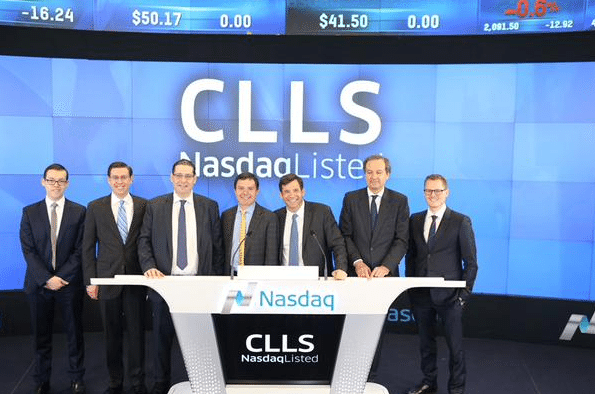
In June last year, biotech giant Pfizer (PFE) entered the CAR-T technology arena with an investment in the then private company Cellectis (CLLS). According to the terms of the deal, Pfizer got exclusive rights to Cellectis development products to be targeted at 15 Pfizer applications. Further, Cellectis had the right to choose 12 targets and have Pfizer contribute towards preclinical development, with $80 million paid upfront and a potential further $185 million milestone for every successful treatment developed. Two months ago, in March 2015, Cellectis went public, with a $228 million IPO. With the IPO priced at $41.50, the company started out strong, but lost some strength over the last six weeks or so to trade just ahead of $30 mid-May. However, over the last 10 days, Cellectis shares have gained more than 55% on the $30 lows, and are currently trading at just over $47 at last night’s close. The reason? Buyout rumors. According to a report released last night by the Financial Times, a number of companies are lining up to discuss a potential acquisition of Cellectis – with the current reported front runner none other than Pfizer itself. With this said, what are the potential terms of any acquisition, and what might it mean for Cellectis shareholders? Let’s take a look.
First, let’s do a quick recap of what Cellectis does and why it might be an attractive acquisition to an incumbent in the space. The company focuses on what is called engineered T cell CAR therapy, with CAR standing for chimeric antigen receptor. The science behind these treatments is pretty complicated, but it can be summed up as follows: Cellectis constructs CARs by piecing bits of different proteins together. They then introduce these to immune cells – generally T lymphocytes – and then the engineered T cells intoto the human body. The CARs that are now present on the T cells allow them to recognize a particular antigen that is present in cancer cells. Upon recognition, an immune response is triggered, and the T cells attack the cancer cells.
Ahead of its IPO, the company announced plans to initiate four phase 1 trials, one for each of its four lead and most promising CAR-T candidates. Even if the negotiations between Cellectis and its suitor are drawn out, therefore, we still have a number of potential catalyst events that could further expand the company’s market capitalization near-term. One of these is the upcoming presentation at the American Society of Clinical Oncology Annual Meeting between May 29 and June 2 in Chicago.
The presentation will include poster sessions on three incidences, UCART19, an Allogeneic “Off-the-Shelf” Adoptive T-Cell Immunotherapy Against CD19+ B-Cell Leukemias, Adoptive immunotherapy of acute myeloid leukemia with allogenic CAR T-cells targeting CD123 and a multidrug resistant engineered CAR T-cell for allogeneic combination immunotherapy targeted at leukemia. The market is very hot for CAR-T at the moment, and so the introduction of these treatments to Cellectis’ pipeline could drive some short term upside momentum in the company’s stock.
Looking specifically at the potential acquisition, what might be the terms? Again according to FT, and sources close to the company, Pfizer has already approached Cellectis to pitch a deal that values the company at as much as €1.5 billion ($1.64 billion). However, given the current run up in Cellectis’ market capitalization, we may get word of an inflated offer in the coming weeks. If this happens, expect another run up in share value before anything is closed.
What are the risks in taking a position at this stage? Well, Cellectis shares – as mentioned – are up 56% on yearly lows, with the increase driven pretty much entirely by speculation of a buyout. If the buyout does not materialize, or we hear rumors that it may be delayed, then we could see much of this added value given back to the markets medium-term. In short, this could be a rewarding play if things turn out as expected, but as a general rule, relying on expectations in pharma is very risky.




